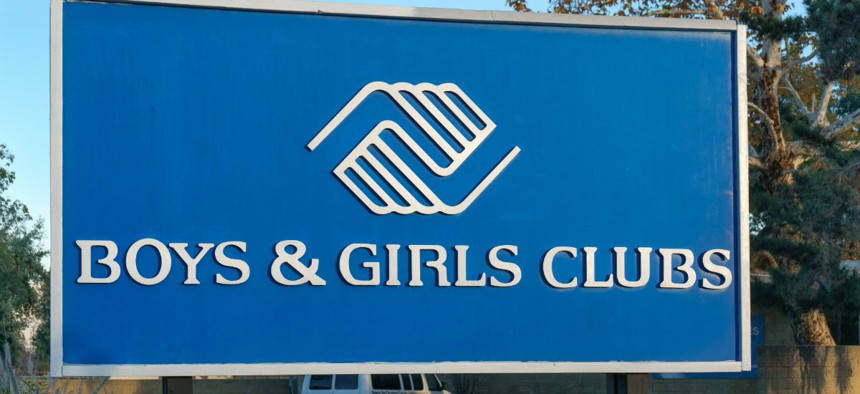
Most of the subawards by the Boys & Girls Clubs were unjustified sole-source arrangements.
Justice Department Grantee Faulted for Sole-Source Youth Mentoring Contracts
Rules against contractor lobbying also were not strictly enforced, IG finds.
In allocating more than $200 million in grant money aimed at mentoring Indian tribal youth, Justice Department grantees over five years relied too much on sole-source contracts and provided lax enforcement of rules against contractor lobbying and conflicts of interest, a watchdog found.
The department’s Office of Justice Programs, as part of its Office of Juvenile Justice and Delinquency Prevention, awarded the Boys and Girls Clubs of America $201.6 million from 2008-2013 to administer national and tribal mentoring programs. The after-school clubs provide a “safe place, caring adult mentors, friendship and high-impact youth development programs,” mostly to American Indians at risk of joining gangs, as noted in a report released on Thursday by the Justice Department’s Office of Inspector General.
The Boys and Girls Clubs—the largest recipients of those grants—in turn sub-awarded 45 contracts to 14 vendors, totaling about $3.1 million.
“We identified significant contract management deficiencies and have questioned $2,962,932 of the award funds received by the Boys and Girls Clubs,” the auditors wrote. “The largest portion of these questioned costs relates to the Boys and Girls Clubs’ use of sole source contracts, which are contracts entered into without first conducting an open, free and fair contract competition.”
Though such contracts are permissible when necessary, most of the 45 contracts sub-awarded by the Boys and Girls Clubs on a sole-source basis did not have the appropriate justification, the IG said.
The organization also failed to consistently certify that no appropriated funds were used to pay for lobbying activity, and to fully disclose, as required, lobbying activity that is paid for with non-federal funds when the awards exceed $100,000. Only one of the contractors, however, exceeded that threshold, the report said.
Finally, the Boys and Girls Clubs “did not consistently ensure its staff and contractors were in compliance with rules pertaining to ethics and conflict of interest, which are also part of code of conduct,” auditors wrote. “We also found that the Boys and Girls Clubs commingled grant funds by using program funds from one grant to pay for contractor expenditures incurred from another grant.”
The inspector general, noting that the audit called into question 93 percent of the subawarded funds, made 11 recommendations to the Office of Justice Programs for improving documentation and compliance with the department’s financial guide.
OJP agreed with all 11. The Boys and Girls Clubs agreed with most, commenting that in some cases the improvements are already under way.







